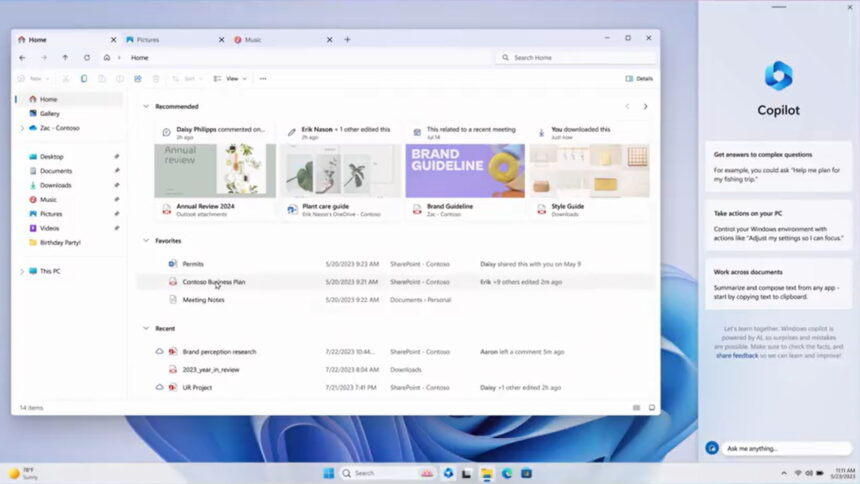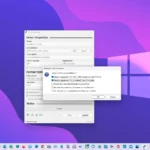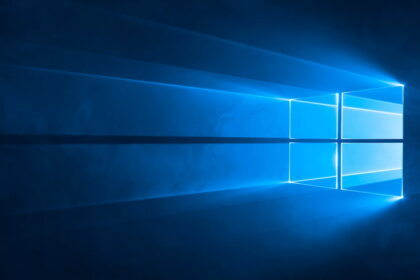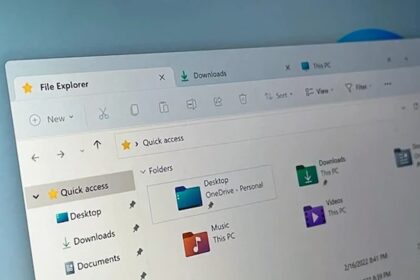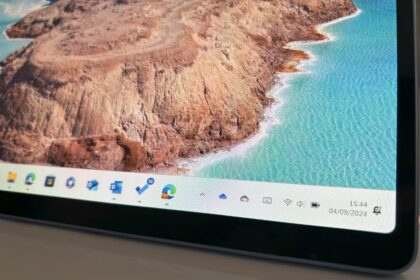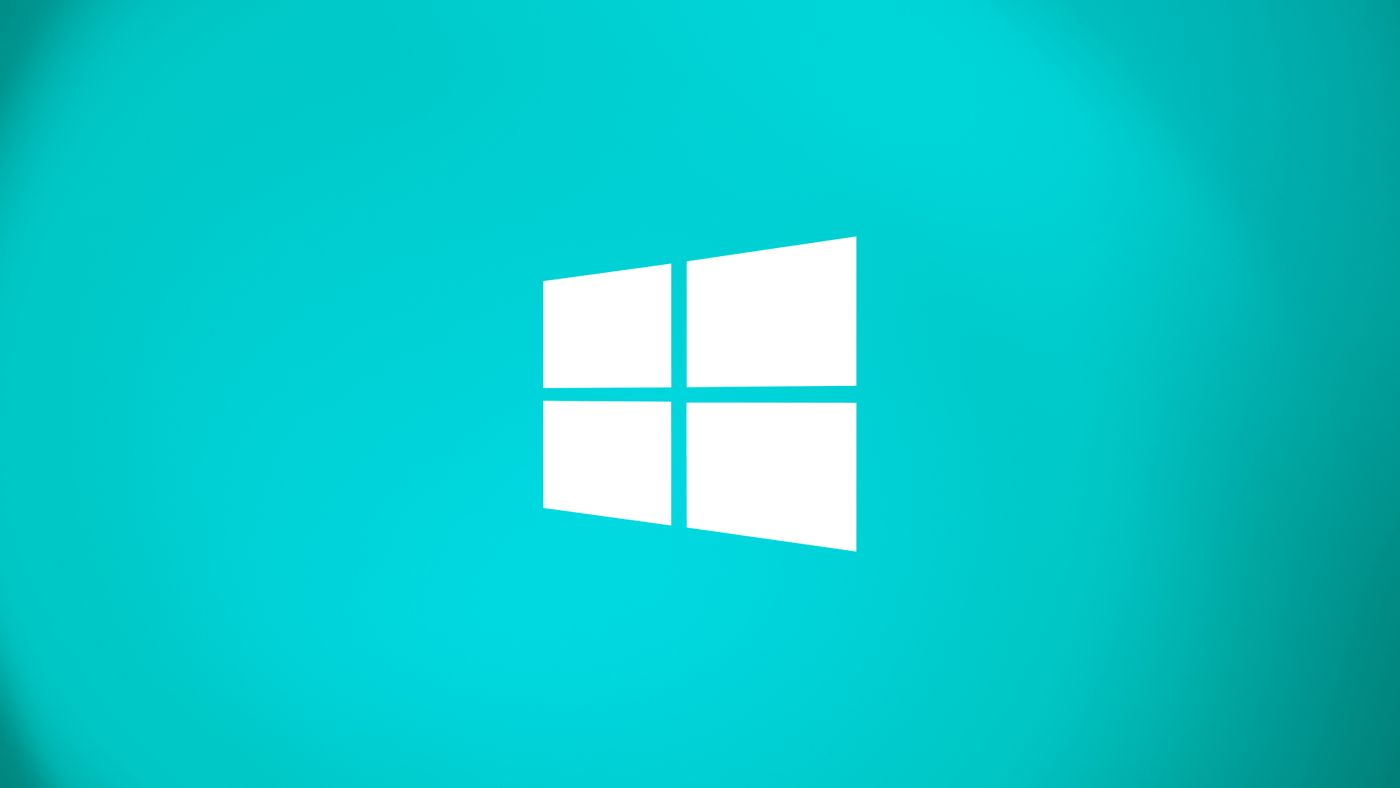Lately, nostalgia has been running high among Windows users — and it’s easy to look back fondly on how File Explorer has evolved since the “Libraries” feature first appeared in Windows 7. Over the years, Microsoft has continued adding new tools and visual changes, not always to everyone’s liking, in an effort to make file management faster and smarter.
The latest experiment, a “Recommended Files” section featuring large thumbnails on the Home tab of File Explorer, has just been paused. Only a few days after its public debut, Microsoft decided to halt its rollout and postpone the feature’s arrival “to a future date.”
File Explorer loses its new recommendations
The feature first appeared on domain-joined work PCs and later began rolling out to personal Microsoft accounts. It was included in update KB5067036 for Windows 11 versions 24H2 and 25H2, released on October 28, 2025. However, on November 5, Microsoft updated the changelog, noting that both the Recommended Files feature and the StorageProvider APIs — which let third-party cloud services display placeholders in Explorer — have been postponed.
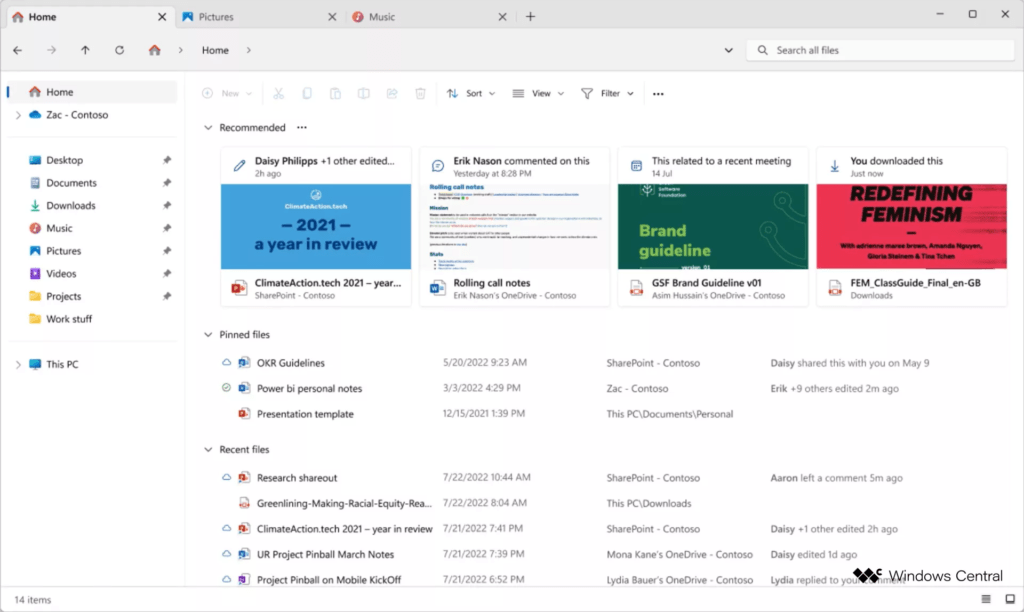
According to Windows Central, the section appeared at the top of File Explorer’s Home page, displaying large cards with recent photos, documents, downloads, and shared files (including OneDrive content).
While it could be disabled via Explorer > Options > Show Recommended, the feature sparked debate due to its large visual footprint and privacy concerns on shared computers.
This pause gives Microsoft time to fine-tune the design, controls, and rollout schedule before reintroducing it. It also affects the StorageProvider APIs, which would enable services like Dropbox, Google Drive, or Box to integrate directly into File Explorer’s Home view — a crucial step in Microsoft’s plan to make Windows a central hub for both local and cloud files.
No new release date has been announced; Microsoft simply says these features “will come later.”
A thoughtful move from Microsoft
Windows has long tried to anticipate what users need, with features such as Quick Access, Recent Files, and, more recently, activity indicators linked to Microsoft or Entra accounts. The idea behind “Recommended Files” isn’t bad — in fact, it originated from a user suggestion in the Windows Insider Hub — but it needs to be implemented correctly, with smarter ranking and robust privacy controls.
In that sense, this pause seems like the right call. Taking extra time to gather feedback, refine privacy options, and improve the functionality of recommendations will make the eventual rollout far more welcome when the feature returns.

